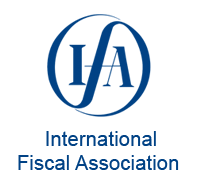Now that the New Private Investment Law seems to come facilitate foreign direct private investment in Angola – inbound foreign direct investment (FDI) to Angola – remain, however, several obstacles to this inbound FDI in Angola posed by law and Angolan regulations such as the “Special Foreign Exchange Contribution” published a few months ago and, as expected, has hindered the execution of inbound FDI to Angola.
The legal framework on the Special Contribution on Current Invisible Transactions (Regime Jurídico da Contribuição Especial sobre as Operações Cambiais de Invisíveis Correntes – “RJCE”) came into force on 30 June 2015. This legal framework was approved by Presidential Legislative Decree no. 2/15 of 29 June.
This new tax- as it should be qualified despite its misleading legal designation as a “special contribution”- shall apply to all foreign exchange transactions made in connection with payments made by Angolan-resident persons and or entities to non-Angolan resident persons or entities for foreign exchange control purposes. The above tax covers payments made in connection with the acquisition from non-Angolan suppliers or service providers of specialized administrative, scientific, or technical services for purposes of maintaining, improving, or increasing a company’s production capacity (either of goods or services), as well as increasing the level of employee professional training.
The rate of this “Special Contribution” is 10% levied on the value of the cash transfer to be made outside Angola in a convertible non-Angolan currency. It must be paid by the Angolan-resident or based entity requesting the transfer subject to the contribution before it can be processed by the financial institutions. The basis for calculation of this tax is the amount calculated in Kwanzas, regardless of the exchange rate to be applied.
There is an exception from this “Special Contribution” for state-owned companies, as well as for welfare and social security institutions, associations of public interest and legally established and recognised religious institutions. This exception does not apply when any of these companies or institutions carries on economic activities with a business or commercial nature.
Banking institutions will only be allowed to execute money transfers outside Angola upon receiving from their clients evidence of payment of this “Special Contribution”.
The origin of this legislation is essentially the fall in the price of the barrel of crude oil in international markets and the need to strengthen foreign exchange control mechanisms in face of capital shortage, reduction of foreign convertible currency reserves and of abusive tax planning and may have very negative effects on the Angolan economy.
This new tax rate of 10%, combined with the new withholding tax regime that resulted from Angola Tax Reform will represent for both foreign investors and local companies a heavy burden.
This new “Special Contribution” will stimulate foreign and national economic operators to retain capital in Angola and should that would not be the case, will allow a very significant additional taxation for international contracts.
For further information please do not hesitate to contact:
Paulino Brilhante Santos
Sofia Quental













